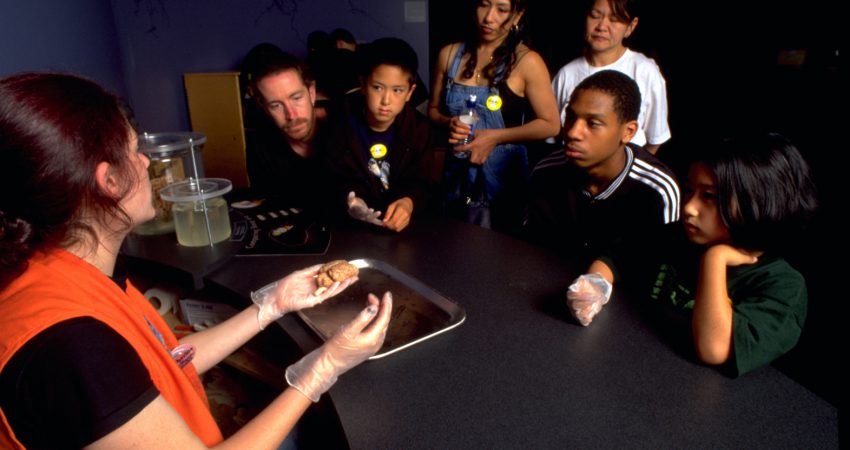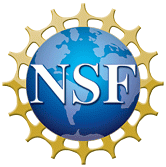
By Elaine Klein - August 2015
PAPER CITATION
Feinstein, N. W., Allen, S., & Jenkins, E. (2013). Outside the pipeline: Reimagining science education for nonscientists. Science, 340(6130), 314–317. doi:10.1126/science.1230855
Through this review of research on public engagement with science, Feinstein, Allen, and Jenkins advocate supporting students as “competent outsiders”—untrained in formal sciences, yet using science in ways relevant to their lives. Both formal and informal settings can be well suited for work in which students translate scientific content and practices into meaningful actions.
Research Design
This paper seeks to understand how education can help youth become “competent outsiders,” (e.g., Feinstein, 2010): citizens who are not practicing scientists, but who use science in ways that are relevant to their lives. By widening the goals and target audience of science education beyond the so-called science career pipeline, this vision has the potential to more equitably engage all youth in the sciences.
To support their argument, Feinstein, Allen, and Jenkins review a variety of evidence from literature on science education and public engagement with science. They highlight how context and experience shape how all kinds of people engage with and interpret science (Irwin & Wynne, 1996). Even for scientists, “science” does not consist of a uniform body of information or set of practices.
Exposing students to variations in scientific methods and practices—by expanding beyond experimentation, for example—may enable them to better interpret how scientific findings relate to their own lives. The authors argue for providing opportunities for students to apply their scientific understanding to issues and questions that are relevant to them. This emphasis is a shift from past pedagogical models that emphasized memorization of content, regardless of relevance to students’ lived experiences.
The Next Generation Science Standards advocate for the integration of the sciences by incorporating practices from across disciplines—interpreting data, developing models, communicating findings, and so on—into classroom learning. However, Feinstein and colleagues complicate this framing of scientific practices, suggesting that it perpetuates an opposition between insider scientists and outsider laypersons, privileging the stances and practices of professional scientists. “Competent outsiders,” by contrast, are positioned to interpret information and use practices that directly relate to their life experiences. The authors argue that science education needs to rise to the challenge of fusing disciplinary practices with youths’ everyday interests. Indeed, multiple studies reveal the power of combining local, historical knowledge from competent outsiders with scientific knowledge to enact change in policy and practices (Bubela et al., 2009; Irwin & Wynne, 1996).
Implications for Practice
This work encourages educators to create spaces for students to pursue their interests as they relate to science. Incorporating youths’ personal concerns into their science learning is vital to foster their development as competent outsiders who can advocate for their communities. By leveraging the scientific practice of argumentation, the authors suggest, students can learn to situate, judge, and act on scientific claims in the media, politics, or other non-school contexts. Further, the authors cite many initiatives that deeply engage students in linking scientific content and practices to their everyday lives, such as socio-scientific issue discussions, science journalism, and bioethics projects.
Informal environments are ideal for integrating youths’ interests, but practitioners in all kinds of settings can enable students to follow their unique science-related interests. The authors see three main pathways for educators, curriculum designers, and other stakeholders to help students make connections between their science learning and everyday interests:
- Using project-based learning and place-based pedagogies
- Building meaningful networks among schools, museums, afterschool clubs, and community organizations
- Incorporating science-based games (such as Fold-It ) and citizen science initiatives (such as Bumble Bee Watch ) into science curricula.
These examples should encourage science educators in all learning environments to focus teaching, programs, and exhibits to capitalize on student interests. Some kinds of interests that educators might focus on could be:
- local – like focusing on a nearby river in an aquarium exhibit,
- cultural – highlighting practices, beliefs, or elements of
- related to the developmental needs of certain age groups, e.g., building more color or sound into exhibits for young children.
The ultimate goal is to produce citizens who, though they are not in the science career pipeline, can access and understand scientific information and make complex arguments about scientific phenomena that are relevant to their lives.




